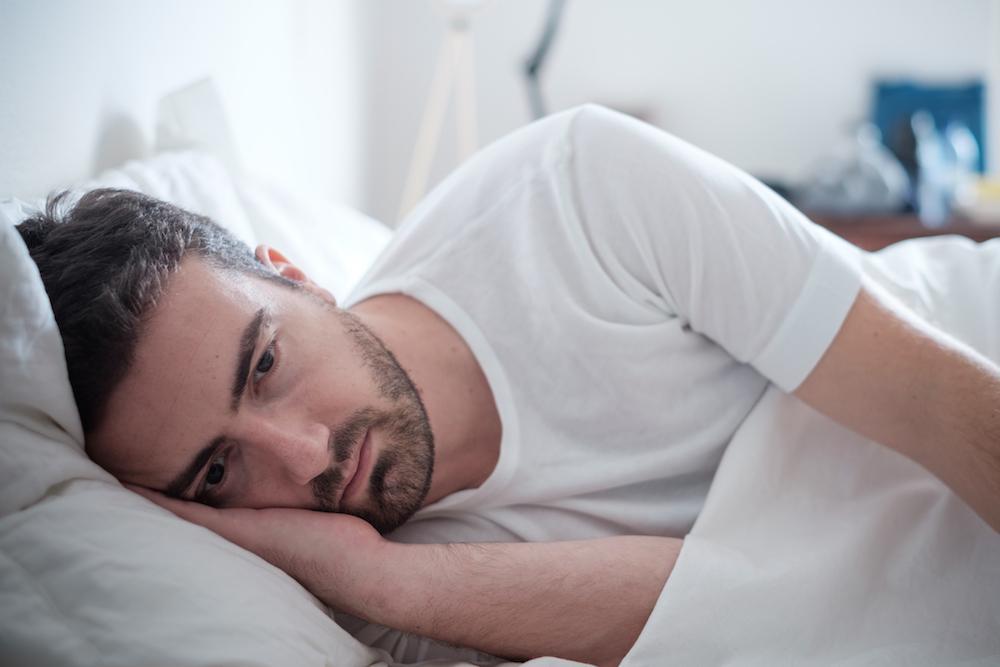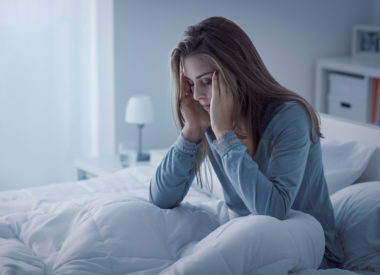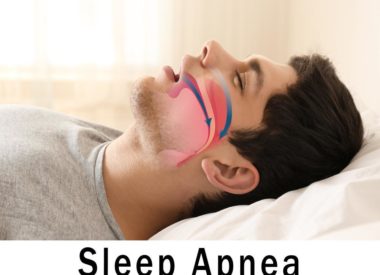Why is Cognitive Behavioral Therapy (CBT) recommended for insomnia?
What is the treatment you first think of for managing insomnia ?
Most people automatically think of hypnotic sleep aids like Ambien as the go-to treatment for sleeplessness.
However, anon-drug therapy for insomnia called CBT-i is poised to be the most effective and common way to treat insomnia.
What is CBT-i?
CBT-i stands for Cognitive Behavioral Therapy for Insomnia. CBT-i is not a new therapy; it has been used by therapists with sleep medicine training to correct insomnia disorders in the past.
However, the American College of Physicians, in May 2016, declared CBT-i as the first line of treatment for insomnia based on recent scientific evidence that shows it is more effective than sleep aids in correcting insomnia disorders.
CBT-i is sometimes used in concert with sleeping pills, but is more likely to be used for patients who do not want to start a course of hypnotic drugs or who are trying to wean themselves off of them and learn to fall and stay asleep naturally.
How does CBT-i work?
This form of structured behavioral training helps those who suffer with insomnia to replace negative thinking patterns and behaviors that lead to sleeplessness with actions that encourage better sleep.
Rather than address the problem of insomnia with a pharmacological treatment, CBT-i works to help insomniacs determine the root cause of their sleep disorder.
CBT-i is not a single technique, but a full range of techniques that can be used to improve sleep behaviors. They can include:
-
Biofeedback. With the assistance of a therapist, a patient can use a device that monitors specific vital signs during bedtime, such as pulse and respiration, to identifystress-related responses they can then learn to modify and overcome.
-
Relapse prevention. Even when poor sleep patterns are corrected, old habits die hard. A good CBT-i practitioner can offer patients strategies for preventing relapse.
-
Relaxation training. This includes ways to relax both mind and body, such as through meditation, muscle relaxation, self-hypnosis, or yogic breathing.
-
Sleep hygiene education. Better bedtime habits related to eating, exercising, preparing for bed, dealing with stress, using electronics, controlling environmental stimuli, and housekeeping are just some of the ways a person can defend against insomnia.
-
Sleep restriction. A good CBT-i practitioner can guide an insomnia patient through a strategic rephasing of sleep by a a choreography of shifting bedtimes and alterations in sleep schedules in order to reset their circadian rhythms.
-
Stimulus control therapy. One of the more disabling problems with insomnia is the experience of “racing thoughts” at bedtime; CBT-i can give patients tools to banish racing thoughts so they can fall asleep.
CBT-i can also be used to treat other sleep challenges, such as acclimation to CPAP therapy for claustrophobic first-time users; struggles for those who suffer recurrent nightmares ; menopause-related sleeplessness; and behavioral habits in children who have not learned how to fall or stay asleep.
Unlike medications used to treat insomnia, CBT-i may not work immediately, as this form of treatment requires long-term behavioral modification. For those who are impatient or desperate to find asleep again, the thought of CBT-i may not seem very promising, because it takes work and discipline to achieve results.
However, drug therapy is not necessarily a better option and has increasingly fallen out of favor among sleep specialists, especially in light of nationwide concerns about over-the-counter prescription addiction and habituation. Meanwhile, recent research supported by the National Institute of Mental Health shows a statistically measurable long-term value in using CBT-i versus sleep drugs.
Over the last decade, a shortage in the supply of skilled CBT-i practitioners available to treat insomnia disorders has been problematic; this has frequently meant that sleeping pills were often a patient’s only treatment option. Today, however, the trend is toward more therapists getting the necessary training to meet these demands head on.
Why might CBT-i be a better option for treating insomnia than sleep aids?
Drug therapy for insomnia has been examined closely for decades, and the results of recent research find that:
-
the vast majority of drugs used to facilitate sleep have unsafe side effects
-
drug therapy for insomnia can negatively interact with other maintenance drugs
-
sleep aids are only meant for short-term use due to their highly addictive nature
-
elderly patients using sleeping pills have increased risks for falling, sustaining physical injuries, and developing dementia
The good news is that most insurance policies cover CBT-i, and patients can usually meet with more than one practitioner for a free visit in order to find one that offers a therapy style they are comfortable with.
In addition, CBT-i may be more cost effective.Clinical Psychologist and board-certified sleep specialist, Dr. Michael Breus, wrote in his July 2016 article, “The Economics of Treating Insomnia,” in the Huffington Post :
“Scientific research has strongly established the therapeutic effectiveness
of CBT for insomnia. Research has demonstrated that CBT can be as or
more effective than sleep medications in reducing symptoms of insomnia,
particularly over the long term…
“Several studies investigating the cost of CBT for insomnia show that this
form of insomnia treatment is both therapeutically effective and also cost
effective. CBT for insomnia reduces health care utilization and health care
costs, according to this research.”
The emergence of virtual CBT-i
If you are unable to locate a CBT-i practitioner in your area, there are a number of medically-approved virtual apps that can fill this gap.
These virtual therapies follow practice guidelines developed by CBT-i experts; while the programs all differ, they are capable of doing at least one, and usually more than one, of the following:
-
collecting sleep-behavior data through an integrated wearable device
-
providing regular, personalized feedback from a trained CBT-i therapist
-
delivering Spanish- or other foreign language instruction
-
working in combination with drug therapy over a limited time frame (around 4 weeks)
-
connecting patients to an online support system
-
using monitoring for real-time remote observation of patients
CBT-i apps are generally inexpensive when compared to face-to-face sessions, but they can be equally as effective, with an average statistic of 70 to 80 percent of users reporting success in reclaiming healthy sleep schedules for at least six months following therapy, according to a program survey in Sleep Review.
If you struggle with insomnia, but resist pursuing a diagnosis because you are concerned you will be put on a course of sleeping pills, you’ll find comfort in knowing you have multiple options for treating your sleeplessness that do not have to include medications.
Whatever else you do, don’t avoid the sleep doctor if you need help. You are at greater risk for harming yourself or others due to accidents, or for developing chronic illness, if you don’t get adequate sleep, night after night. Insomnia symptoms can also reveal other problems that need attention. Do yourself a favor and talk to your doctor about all of your options for treating your lack of sleep.
Sources:
American Academy of Sleep Medicine
Annals of Internal Medicine
Huffington Post
Mayo Clinic
National Institute of Mental Health
National Sleep Foundation
Psychology Research and Behavior Management
Sleep Review



